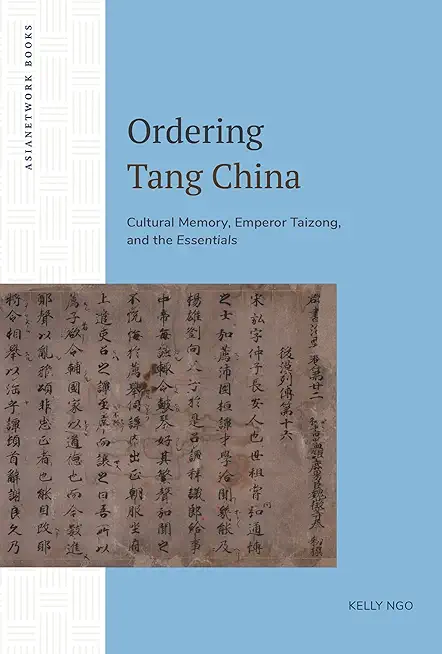
Ngo, Kelly
product information
description
Memory, Emperor Taizong and the Essentials, Kelly Ngo presents the first book-length study in English of the Essentials for Bringing about Order from Assembled Texts (Qunshu zhiyao 群書治要), a rulership anthology that became renowned for its model of governance in ancient and early modern East Asia. The Essentials is one of the earliest Chinese anthologies designed to educate rulers in cultivating an ethical character and governing the state. Commissioned for the Tang emperor Taizong in the 620s, the Essentials articulates a distinctive political philosophy through a collection of excerpts from earlier canonical, historical, and masters writings, and their commentaries. Examining the Essentials and its transmission in China, Japan, Korea, and Vietnam through the lens of cultural memory, Ngo explores the foundation, conduct, and impact of Zhenguan rulership, which became synonymous with good governance among later generations of ruling elites, scholars, and historians in China and beyond. By connecting the textual discourse with an analysis of its use and reception across the region, Ngo demonstrates that the Essentials was a key source of Confucian political thought and practice during the early Tang dynasty. In accounting for the place of the Essentials in political advice literature, Ngo illustrates how it drew from the ancient Confucian heritage and was still responsive to contemporaneous political concerns, suggesting that the Essentials played a part in the success of Zhenguan political practice. Ordering Tang China also includes the first English-language translations of portions of the seventh-century anthology, with reference to partial translations published in nine languages. Utilizing the theory of cultural memory to study the Essentials not only opens a fresh approach to learning about the imperial consumption of literature, as well as the theory and practice of emperorship, but also offers a case study for how to study Chinese governance literature, including its "mirror for princes" genre.
member goods
No member items were found under this heading.
Return Policy
All sales are final
Shipping
No special shipping considerations available.
Shipping fees determined at checkout.







